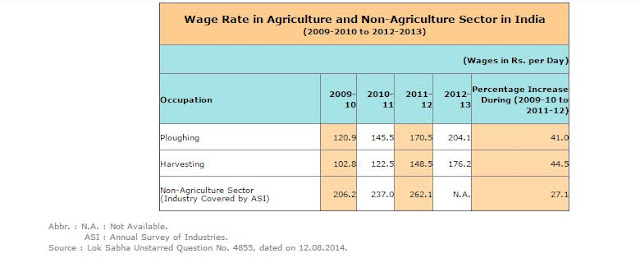Consumer Confidence or Voter's Confidence
Is it a Consumer Confidence, Consumer Expectation and Consumer Sentiments or Voters Confidence, Voters Expectation and Voters Sentiments?
Reserve Bank of India conducts the Consumer Confidence Survey (CCS). RBI conducts this survey in thirteen major cities Ahmedabad, Bengaluru, Bhopal, Chennai, Delhi, Guwahati, Hyderabad, Jaipur, Kolkata, Lucknow, Mumbai, Patna, and Thiruvananthapuram. The main aim of this survey is to capture the perceptions and expectations of the general economic situation, the employment scenario, the overall price situation, and own income and spending. The last data released by RBI is for November 2019.
Centre For Monitoring Indian Economy Pvt Ltd (CMIE) also tries to analyze the consumer sentiments through Consumer Pyramids Survey (CPHS). This survey is a longitudinal survey. CMIE provides the index for consumer sentiments, index for consumer expectation and index for current economic conditions.
The perception about the economic condition (according to RBI’ CCS) is not good and deteriorating while the index of consumer sentiments, index of consumer expectation and index for current economic conditions (according to CMIE’s CPHS) is not that bad.
But the most serious issue is that the consumer’s future expectation is still very optimistic. According to RBI’s CCS, the one year ahead expectation about economic conditions is very positive despite the fact that the economic conditions are deteriorating over the period of the time. But the interesting point is that in these thirteen cities (where RBI conducts the survey), there are 31 parliamentary constituencies while out of these 31 (urban) in 22 constituencies, ruling parties won the election with huge vote share (i.e. above 50%). It will be interesting to know whether these surveys are actually reflecting the consumer's confidence about the economy or voters' perceptions about the political parties.
The future expectation for economic conditions is still optimistic while as far as future expectation on employment is concerned, it is also very optimistic. On the other hand, the unemployment rate is increasing.
While there are contradictory things, one thing is common i.e. voting pattern.
In these constituencies, voters are pretty sure rather very confident about the previous ruling parties. The ruling party is not only winning in these cities but winning with a huge vote share.
Therefore it is important to know whether the future expectations reflected in the Consumer Confidence Survey are influenced by the economic condition or by the political perception.
Are people in other cities where ruling parties are getting fewer votes optimistic about the future?
Therefore before interpreting these surveys, one must analyze whether it is driven by an economic condition or political commitment.




.jpeg)


टिप्पण्या
टिप्पणी पोस्ट करा